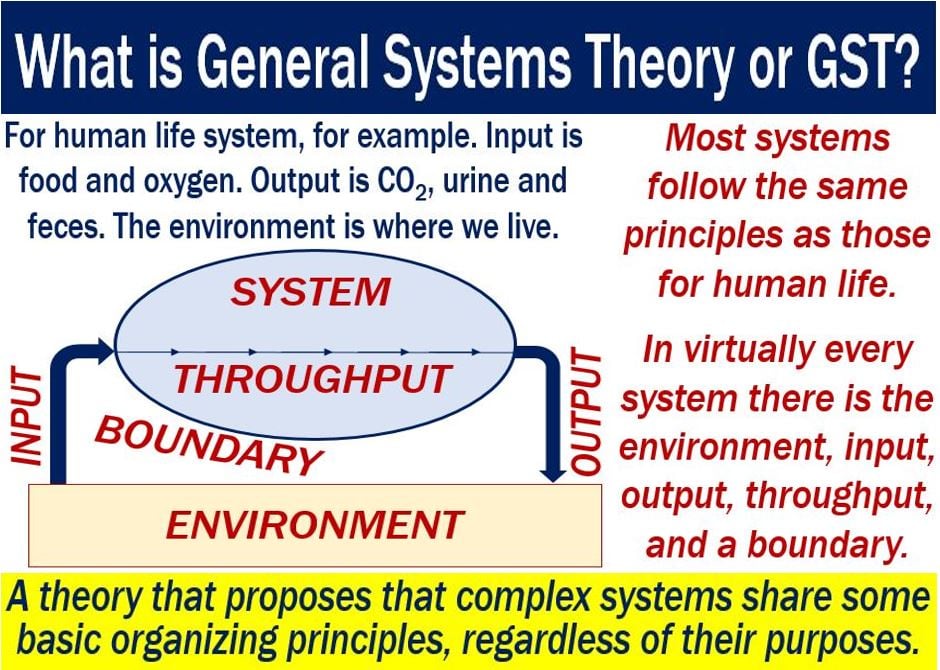GST (General Systems Theory) – definition and meaning
General systems theory or GST proposes that complex systems share several basic organizing principles. They share these principles irrespective of their purposes. According to GST, it is possible to model these principles mathematically.
Put simply; GST focuses on the structure of systems rather than what they do.
Rather than reducing an *entity to the property of its elements or parts, general systems theory focuses on the whole entity. In other words, it focuses on the relationships between and arrangement of the parts which connect them into a whole.
* An entity is anything that is formed and administered. For example, a person is an entity, and so is a company. Even the government is an entity.
This organization of something determines a system. It is independent of the concrete substance of the elements.
General systems theory, therefore, proposes that the same concepts and principles of organizations underlie different disciplines. By disciplines, we mean biology, chemistry, physics, sociology, management, psychotherapy, etc. The theory provides a basis for their unification.
GST concepts include process, output, input, system-environment boundary, and goal-directedness. The concepts also include information as well as hierarchy.
Put simply; GST proposes that the structure of any system is often as important in determining its behavior as its individual components.

GST – Karl Ludwig von Bertalanffy
Karl Ludwig von Bertalanffy (1901-1972), an Austrian biologist, was one of the early founders of general systems theory.
GST came to relate to finding a general theory to explain all systems in all scientific fields.
“There exist models, principles, and laws that apply to generalized systems or their subclasses, irrespective of their particular kind, the nature of their component elements, and the relations or ‘forces’ between them.”
“It seems legitimate to ask for a theory, not of systems of a more or less special kind, but of universal principles applying to systems in general.”
The field of GST emerged as a corollary of biological studies. The theorists first analyzed ecological systems in nature. They subsequently applied the basic logic of systems to non-ecological phenomenon.
Regarding GST and early systems theorists, Academic Kids writes:
“Early systems theorists aimed at finding a General systems theory that could explain all systems in all fields of science. The term goes back to Bertalanffy’s basic work ‘General Systems Theory’.”
“Sociologists like Niklas Luhmann also worked towards a general systems theory, but as of today no systems theory can live up to this claim.”
Many proponents of GST have tried to develop a general theory that could explain the function of any system. This approach would explicate systems as diverse as a government or an ant colony according to the same principles.
Their hypothesis, therefore, suggests that there is a basic logic within every system.
Video – General Systems Theory overview
In this Oregon State University video, Kelly Alvarado talks about GST, i.e., general systems theory. She talks about Ludwig Van Bertalanffy and gives us an overview of systems theory. She also lists its criticism and shortcomings.

